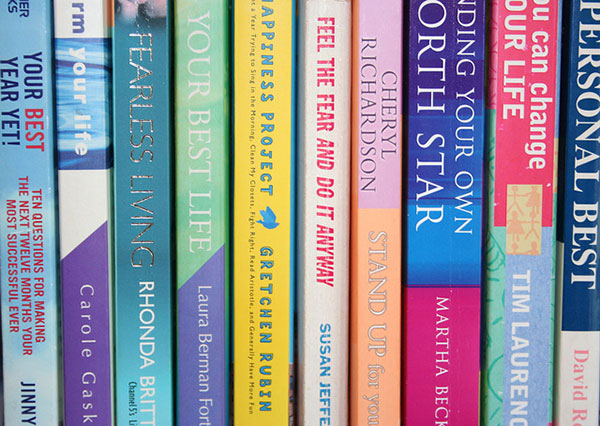
Photo by Angie / CC BY-NC 2.0
In the most Freudian tradition, it began with my Dad.
The Dad who was absent?
No.
The Dad who was reckless?
No.
He’s not that kind of Dad.
The Dad who for Christmas, wanted not the latest James Patterson thriller, but a hefty computer programming manual for his leisurely reading?
Yes. That’s the one.
The Dad whose work centers on graphs and data and code and numbers and other terrifying things?
Yes. This is about that Dad.
I’m sure that some of his analytic tendencies snuck into my DNA.
The benefits? A boundless sense of optimism in my ability to solve computer-related problems.
Firewall? Yep, I got it. VPN? Bandwidth? Defrag? HTML? I’m all over it.
The drawbacks? A boundless sense of optimism in my ability to solve every other part of my life.
Traditionally I would crowd-source answers. If you ask everyone you know the same question, there’s got to be a median response!
Then, along came Google.
That glorious oracle.
Mecca of all the answers.
What’s your quandary? Emotional, relational, spiritual, medical?
Google: is it normal to have one dark black hair on your arm that keeps coming back when the rest of the hairs are kind of blonde-ish?
Yes. Probably normal. Maybe skin cancer. But probably normal.
I would surreptitiously type questions under the table during a dinner date: Google: he didn’t hold the door open for me, is that a deal breaker?
It turns out that Kelly from Illinois had a strong opinion on this in a 2006 reddit discussion entitled “He didn’t open any doors for me, deal breaker?”
Google led to discussion boards which led to websites which led to book recommendations.
And suddenly, I had a full-blown self-help book addiction:
Intimacy and Solitude
The Dance of Anger
Men are from Mars Women are from Venus
The Highly Sensitive Person in Love
Seven Habits of Highly Effective People
These were serious books! Written by serious people! With letters after their names!
Then one day I was on the phone with a friend. She was dutifully listening to my latest relational conundrum, now encased in the kind of language reserved for psychologists.
“Yeah so I think his text message was like a landing point for my abandonment complex, exacerbating the grieving inner child for the loss of innocence and unresolved attachment issues relating to my caregivers of origin.”
She paused and said, “Cherie, I think you need to stop reading self-help books.”
I suddenly realized what my brain must look like. Rather than an oasis of calm, it was like a high-tech security room in a James Bond film from the ’90s, full of lasers. Everything had the potential to set off this series of alarms to which I must frantically find a solution.
Despite their name, these self-help books were not helping, they were holding me back.
There’s a Greek guy at my work, short, 60-something with a shock of gray hair. He told me he’s going to retire soon.
“Great!” I said. “What will you do with retirement?”
“Sister…” he said. Dramatic pause. “I’m going to sit under a tree and meditate.”
He continued, unprompted, “There’s no judgement in love sister, if you clear your mind, there’s only light. Light doesn’t decide what to shine on, it just shines.”
Aha.
Light. Shining. Not thinking.
Good.
I started reading fiction again–the kind of fiction with such vividly-drawn worlds that it follows you into your waking hours and captures your dreams.
I stopped listening to podcasts and audiobooks and filled my headphones with Rachmaninov and Debussy.
I started listening to my own intuition again, rather than seeking answers outside of me.
The peace that transcends understanding.
I think I get it now.
About Cherie Lee
Cherie Lee is a writer from Sydney who’s passionate about the arts and often performs her blogs live. She’s also influenced by the emergent church movement and enjoys a good debate. You can find her blog at cherielee87.blogspot.com.au.
Leave a Reply